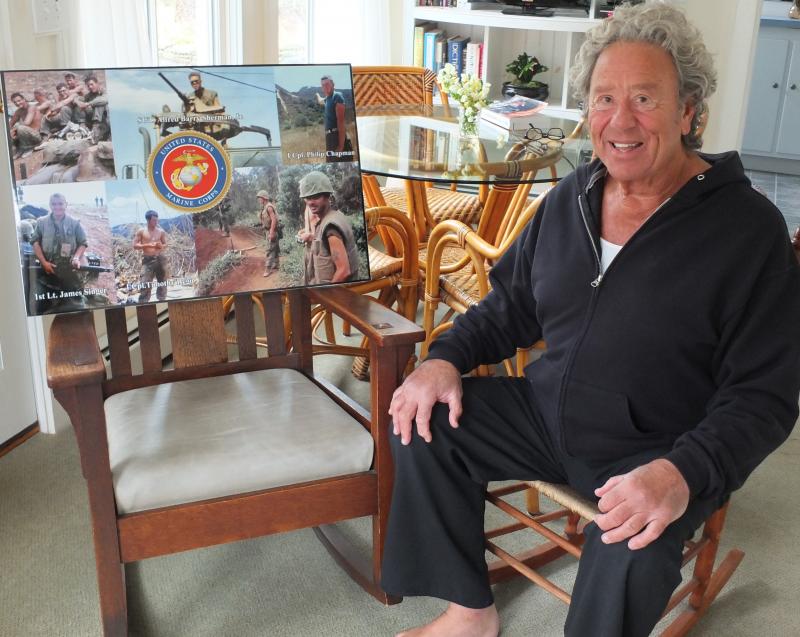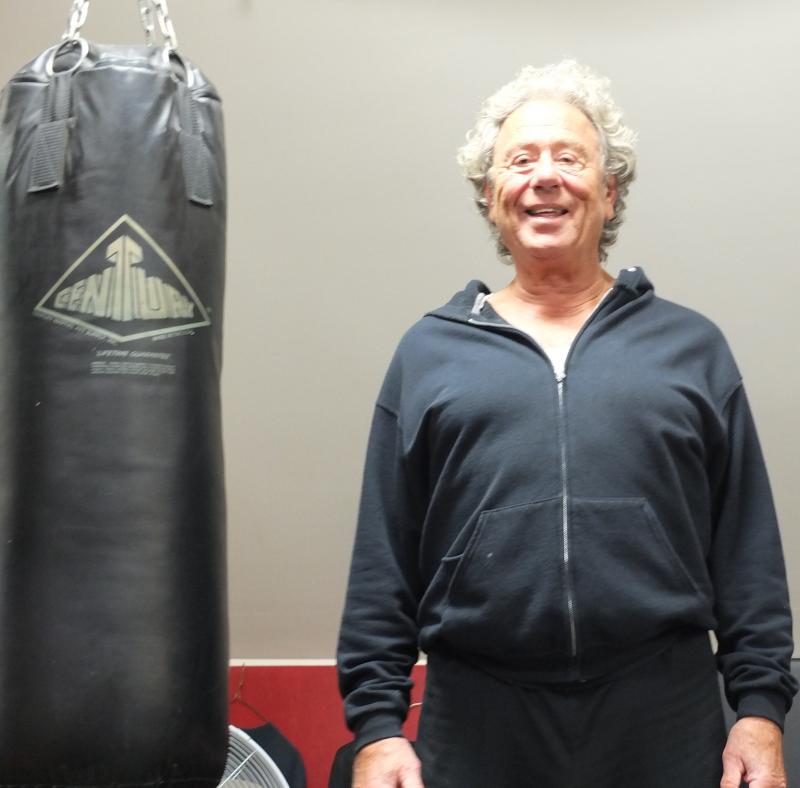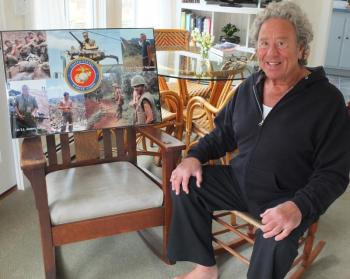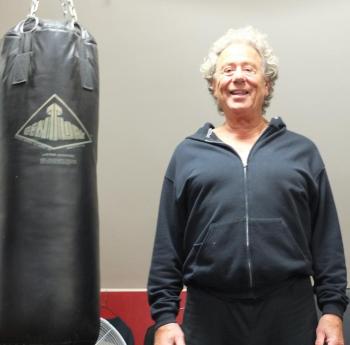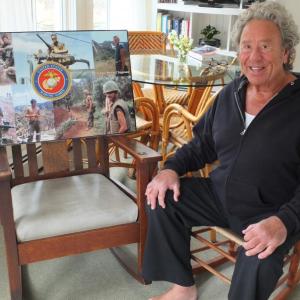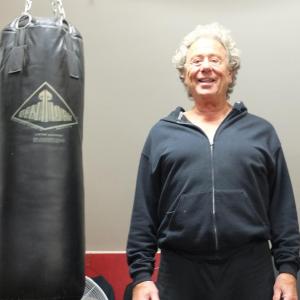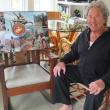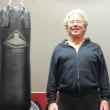Vietnam veteran fighting now in different arena
It seems when Barry Sherman was born on March 29, 1947, he was destined to become a war veteran. His father and namesake Alfred Barry Sherman Sr. served in World War II and fought in one of the Pacific theater’s pivotal battles, Iwo Jima. Barry’s uncle Ray Sherman was a highly decorated World War II vet earning a Purple Heart and Silver Star, and another uncle, Kilburn Sherman, served with distinction in World War I. Kilburn was gassed at Belleau Woods in France, taken as a German prisoner of war, and received the French Medal of Honor (Croix de Guerre) from the French government.
On Sept. 9, 1966, Barry Sherman added his name to those distinguished military veterans and several other aunts and uncles who served their country during wartime. At 19, he enlisted in the U.S. Marine Corps as his father did a generation earlier.
“The (Vietnam War) was going on and I wanted to serve like my family had.” As a Marine, his tour of duty lasted 13 months, not the 12 required of other military branches. Also, his training regimen was shortened from 12 weeks to eight, as the need for more Marines grew. Sherman served for four years which included two tours of Vietnam duty. In boot camp, he experienced a traditional form of training called “duck chow.”
Hungry Marines would fill up their trays and return to a table eager to eat in the mess hall. While awaiting the command to eat, they frequently heard a different order, telling them to dump their chow and go outside the mess hall. “It was a punishment and we were told to ‘duck in’ and ‘duck out.’ It was really hard because you were so hungry,” Sherman said.
Following boot camp and training, Sherman was assigned to a transport unit where he served in a convoy unit transporting supplies to the DMZ (demilitarized zone) and gathering damaged military equipment. Sherman sat atop a truck with a .50 caliber machine gun, protecting the convoy from snipers. Sherman realized he was in a precarious situation being exposed to enemy fire only wearing a helmet and flak jacket for protection. “I was nervous and worried whether I’d be able to do the right thing when the ‘shit hit the fan.’”
Conflict wasn’t only found in the Vietnamese jungles. The 1960s were also a time of change and the Civil Rights Movement was in full swing by the time Sherman arrived in Vietnam. Despite the camaraderie of fighting a common foe, Sherman’s unit, and entire country, were struggling to come together regarding race relations. “There was a lot of race problems,” he said. “Black Power and White Power signs were given, so they put us in boxing matches and let us fight to get our frustration and aggression out.”
After his tour ended, he returned home for a visit. He wanted his father to see him in his Marine uniform, but a taxi driver advised him not to wear it in public. Veterans didn’t receive the same welcome home that Sherman’s World War I and II relatives received. He still wears the emotional scars from his Vietnam service. “It was a horrible time for everyone involved. It was sad how we left. It was sad how we were treated when we returned, and it ripped the country apart like nothing except the Civil War.”
After one 13-month tour, Sherman was eligible for another post in the Marine Corps. Instead, he enlisted for a second tour. “I wanted to go back because I didn’t want to leave the men who I served with,” he said. After his second tour, his service finished with three years, 11 months and four days in Vietnam.
In 1970, Sherman returned to Boothbay Harbor. His service as a Marine seemed a good fit for the Maine State Police, but for the second time in his life, he decided to follow in his father’s footsteps. He joined the family decorating business of installing carpeting, draperies and upholstery.
“I never regretted that decision. We didn’t make a lot of money, but we both had a really good life.”
During his military service, he received the Navy and Marine Achievement Medal with Combat V (valor) from the Secretary of Navy. The citation reads: “Cpl. Sherman’s outstanding professional ability, untiring determination and steadfast devotion to duty reflect credit upon himself, the Marine Corps and Naval Service.” Sherman credits the Marines with giving him direction into civilian life. “It really saved my life. I was kind of a wild child,” Sherman said.
But war has also left him angry about the reception Vietnam vets received following their service. “I still have a lot of bitterness about it. Instead of honoring us, they protested and called us names.”
As time passes, the public’s view on Vietnam veterans has improved. March 29 is National Vietnam Veterans Day. So maybe Sherman was born to be a veteran, after all. This year’s ceremony was held in the state capitol’s Hall of Flags. And Sherman, a Vietnam vet and birthday boy, was serenaded by Gov. Janet Mills.
“It was a great moment having the governor sing ‘Happy Birthday’ to me on National Vietnam Veterans Day. Some of the guys kidded me how I should move into the Blaine House,” he said.
Today, Sherman, 72, is no longer in the decorating business. He cuts firewood, enjoys riding his Harley Davidson motorcycle and is involved in a different kind of combat. Sherman holds three black belts in the mixed martial arts. He trains regularly in karate, tae kwon do and jiujitsu. “It’s like getting a college degree there is so much studying involved. The training is extensive and it’s really good for the body, too,” he said.
In his studio at home, internationally renowned jiujitsu master Joe Moreria and grand master Francisco Mansur, both of Brazil, have taught him. Sherman shares the lessons he’s learned from these masters to students in his studio.
And each year, Barry follows in his father’s footsteps a third time, in leading the local Memorial Day parades.
Event Date
Address
United States

